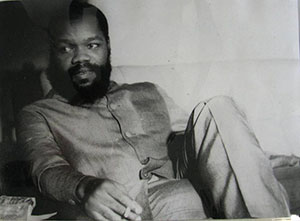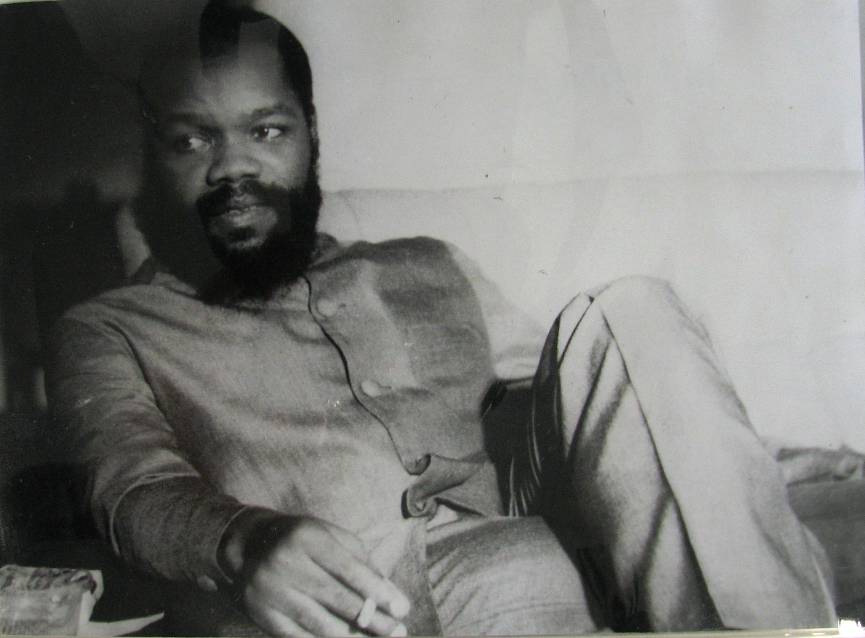 Ojukwu was born on 4th November 1933 at Zungeru in Northern Nigeria to Sir Louis Phillippe Odumegwu Ojukwu, a very successful businessman from Nnewi in south-eastern Nigeria. He began his educational career in Lagos, the hub of political and intellectual activity in colonial Nigeria. At 13, his father sent him to England to study, first at Epsom College, in Surrey and later Lincoln College, Oxford University (from 1952 to 1955.) He earned a Masters degree in history from Oxford at a time of burgeoning African nationalism. Ojukwu remained “Nigeria’s most famous Oxford graduate.”
Ojukwu was born on 4th November 1933 at Zungeru in Northern Nigeria to Sir Louis Phillippe Odumegwu Ojukwu, a very successful businessman from Nnewi in south-eastern Nigeria. He began his educational career in Lagos, the hub of political and intellectual activity in colonial Nigeria. At 13, his father sent him to England to study, first at Epsom College, in Surrey and later Lincoln College, Oxford University (from 1952 to 1955.) He earned a Masters degree in history from Oxford at a time of burgeoning African nationalism. Ojukwu remained “Nigeria’s most famous Oxford graduate.”

© PRO, London
PRESS RELEASE
March 16th 2012
Chukwumeka Odumegwu Ojukwu (1933 to 2011)
The Leader of the Biafra Revolution Passes On
Chukwumeka Odumegwu Ojukwu (1933 to 2011) passed away on Saturday November 26th, 2011 in London at the age of 78 as a result of complications of a stroke.
Ojukwu was born on 4th November 1933 at Zungeru in Northern Nigeria to Sir Louis Phillippe Odumegwu Ojukwu, a very successful businessman from Nnewi in south-eastern Nigeria. He began his educational career in Lagos, the hub of political and intellectual activity in colonial Nigeria. At 13, his father sent him to England to study, first at Epsom College, in Surrey and later Lincoln College, Oxford University (from 1952 to 1955.) He earned a Masters degree in history from Oxford at a time of burgeoning African nationalism. Ojukwu remained “Nigeria’s most famous Oxford graduate”
He returned to colonial Nigeria in 1956 and like many Igbos, invested his energy in making the Nigeria federation a success. He was one of the first university graduates to join the Nigerian Army and was promoted to Lieutenant-Colonel in 1964. When the first coup occurred in 1966, Lt. Col. Odumegwu-Ojukwu supported the forces loyal to the Supreme Commander of the Nigerian Armed Forces, Major-General Aguiyi-Ironisi.
Ojukwu served as the military governor of the Eastern Region of Nigeria in 1966, and later the de-facto leader of the Republic of Biafra from 1967 to 1970. No commentary on Africa’s post colonial past will ignore the Biafran war of independence and any unbiased analysis of that war and its antecedents in the context of Nigeria’s postcolonial history will certainly conclude that Ojukwu’s cause and unrelenting desire to protect the lives and property of eastern Nigerians during that dark period was a just one. Moreover, excerpts from his speeches during his time as the Commander in chief of the Biafran armed forces, reveal that he and his government were far ahead of their time, in understanding the factors, both external and internal, responsible for the failure of the Nigerian state. It is noteworthy, that the factors that precipitated the civil war in 1967 continue to play a destabilizing role in present day Nigeria, despite Biafra’s defeat in 1970.
At the end of the civil war and his return from exile in 1982 Dim Odumegwu Ojukwu served as an articulate voice of advocacy for justice and equity in Nigeria until his death. He will be remembered as a true Nigerian Patriot, a visionary leader, an articulate and eloquent defender of his people.
Signed:
The Executive Committee of Igbo Studies Association
